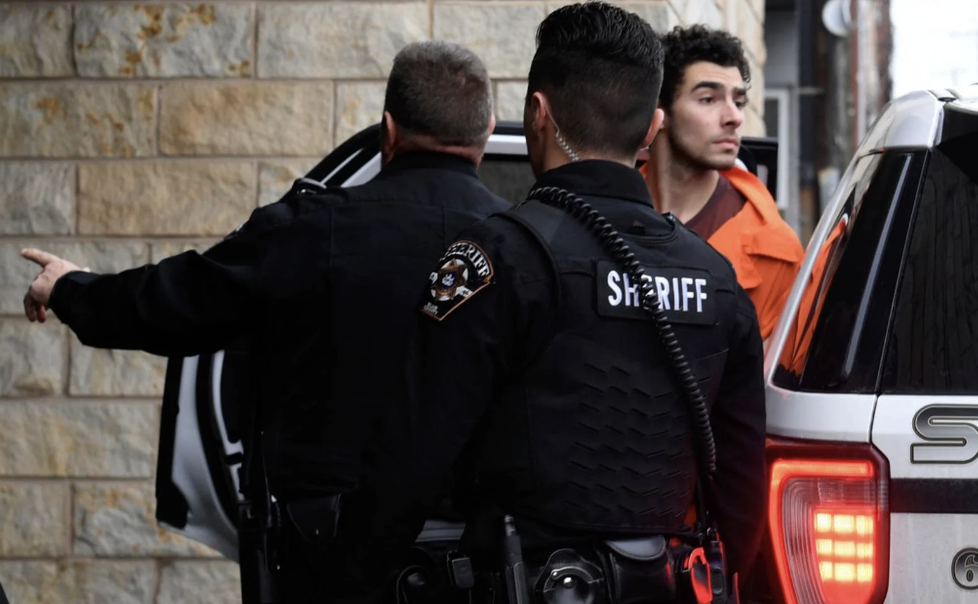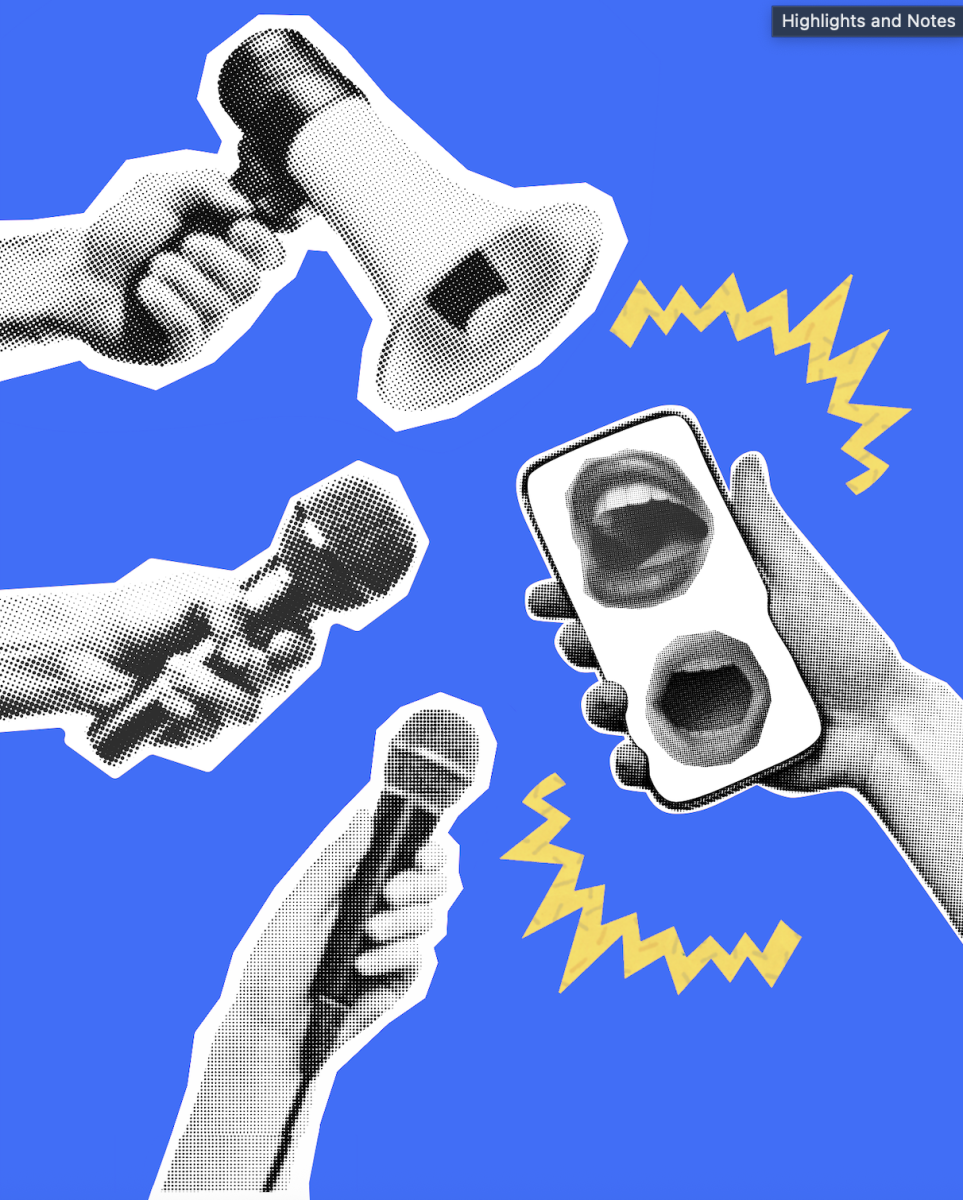Murder is wrong—until it’s not. With the ceaseless stream of information pouring into the lives of even the most determined recluse, the question of morality and ethics seems less like fixed laws, but fluid notions shaped by public perception. The latest issue is the murder of Brian Thompson, CEO of UnitedHealthcare, allegedly killed by the hands of twenty-six-year-old Luigi Mangione.
What makes this case so puzzling is not the crime itself but the stark polarization it has sparked. To some, Mangione is a martyr—a young man who sacrificed his comfortable life to fight for the people, taking a stand against the healthcare system which has long troubled Americans. On the other hand, Magione’s actions represent an unmistakable act of horrible violence: a premeditated murder carried out with cold calculation.
The opposing views regarding Mangione propose two questions: when does society completely forgo the established line of good and evil in pursuit of the “greater good,” and what is this unnamed criteria that must be fulfilled in order to spur on this passionate rebellion?
The planning and execution of the murder is almost startlingly simple. According to The New York Times, Mangione detailed his plan in a notebook, allegedly planning to murder the CEO at the annual convention. More specifically, UnitedHealthcare’s annual investor meeting. Armed with a 3D-printed handgun, Mangione allegedly entered a New York office building and shot Thompson. He later fled the scene and was arrested five days later on December 9th at a McDonald’s in Pennsylvania.
In the notebook recovered by authorities, Mangione outlined his grievances with the healthcare industry, calling it a system that “continue[s] to abuse our country for immense profit because the American public has allowed them to get away with it … I do apologise for any strife or trauma but it had to be done. These parasites had it coming.”
This proposes two conflicting narratives of Mangione: one, that he committed a calculated act of murder. The other, he was a desperate young man, angry at what he viewed as systematic exploitation and injustice. The first view forfeits compassion for Mangione’s motives, reducing him to a villain. The second prioritizes his intent over his actions, dismissing the gravity of his crime in favor of framing him as a tragic antihero.
Mangione has since been faced with three charges: first degree murder in the furtherance of terrorism—which elevates the crime to an attack on society itself—and two second-degree murder charges. If convicted of the highest charge, Mangione would receive life in prison without parole. Prosecutors argue that Mangione’s actions were designed to intimidate and coerce the public, with Manhattan District Attorney Alvin L. Bragg stating, “this was a frightening, well-planned, targeted murder that was intended to cause shock and attention and intimidation.”
To Mangione’s opposers, these charges underscore the severity of his actions. For his supporters, however, it only reinforces the belief that he is a victim of a broken system—one so deeply flawed that it drove him to violence. The opposition of perspectives poses an unsettling question: what does it take for society to excuse human evil?
From the analysis of Mangione’s case, there are three conditions which must be fulfilled at equal lengths to whet public sympathy and support:
One, a shared grievance. The offender’s motives must resonate with a widespread issue that affects the general population to be successful in evoking public sympathy. Often, it fits the idea of “Poor vs. Rich,” in that it would ignite the mentality of a wide-spread victim vehemently oppressed by the wealthy. In Mangione’s case, it is the deep, collective dissatisfaction with the American healthcare system. The rising prices, inaccessibility, and stories of despair and ruin have generated the collective frustration; a frustration which Mangione’s actions directly aim to voice. When a large group feels victimized by a shared system, they are often more willing to empathize with, and even justify, extreme actions taken in defiance of that system.
Second, the story. There must be something about the man in question that is both admirable and pitiful—something that can easily resonate with a group of supporters. For Mangione, these qualities manifest in his personal struggles and perceived sacrifice. He reportedly suffered from severe chronic back pain for all of his life, and underwent spinal surgery in an effort to improve his condition last year. This suggests a man familiar with the failings of the healthcare system he sought to oppose. At just twenty-six years old, Mangione was a young man with his entire future ahead of him. By choosing to abandon that future for a supposed noble cause, he is posed as a tragic antihero: someone willing to risk everything for the sake of a greater future. It is far easier to rally behind the image of a pitiful, desperate young man than to empathize with a wealthy CEO who personifies corporate greed.
Third, the pursuit of the “greater good.” From Robin Hood to revolutionary leaders, history reveres figures who fight for the oppressed against systems of power. Rebellions and countries have been formed on this premise. Even socialism and capitalism began with the same principles: the detrimental injustice with the gap in classes. How many rebellions or debates have been sparked with the idea of the “greater good?” Mangione’s supporters see his actions as a desperate attempt to draw attention to a system they believe quietly kills thousands.
This reasoning opens the door to an ethical dilemma: do the ends justify the means? For Mangione’s supporters, his crime is not about one man’s death, but about confronting a broken system that, in their view, kills in worse ways every day. But for the general ethics of society, this argument risks normalizing violence as a legitimate form of protest.
Mangione’s crime reads almost like something out of a storybook. The premise, the motive, and even the overwhelming support surrounding it are all deeply questionable. When does a murder stop being just a crime and transform into a so-called “necessary evil”? When is crime justified for the pursuit of a “greater good” with the intentions to remediate widespread grievances? Yet, when humanizing the criminal, doesn’t it, in turn, dehumanize the victim? A “necessary evil” is, at its core, an excuse—one wielded by both heroes and villains alike, blurring the distinction between earnest justice and bitter vengeance.
With a broader view of the situation, does the murder of a CEO accomplish anything? Thompson will likely be replaced within weeks by another executive, the system left unchanged. Mangione’s act, for all its intents and purposes, hardly disrupts corporate greed, nor directly alleviates the suffering of those he claimed to fight for. This murder leaves behind only tragedy and a growing divide over the morality of his actions.
Is it just to rely on violent means rather than using the well-established systems designed to facilitate change? Even in history, once violence is diluted to nothing more than means to a glorified end, the line between justice and chaos begins to blur. If the public continues not only to cheer for, but to revere, violent and eventually pointless acts like Mangione’s, where does it stop? What else becomes excusable? What else can be justified?
Mangione’s case, alongside the mounting support it has garnered, reveals a deep unrest simmering within American society, centered in the increasing “Rich vs. Poor” divide that has long been etched into political agendas and everyday troubles. In hindsight, today’s issue lies not in the murder, but the public approval of it.



![[Charlie Kirk] by [Gage Skidmore] is licensed under [CC BY-SA 2.0].](https://flhsprospect.com/wp-content/uploads/2025/09/charlie-kirk-article-1200x800.jpg)




